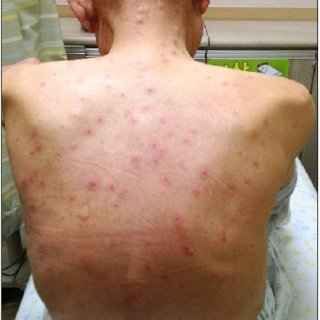If you’re sexually active, you’re more likely to contract hsv2 genital herpes, but there are ways to protect yourself from infection. While the virus is highly contagious between men and women, it can also spread to other sexual partners. In fact, about one in five women and one in nine men have some form of herpes. African-American women are particularly susceptible to herpes, and men with compromised immune systems are also more likely to contract it. These people are at greater risk of developing the most severe complication. People with weakened immune systems, such as those taking drugs that suppress the immune system, organ transplantation, or HIV/AIDS, are also more likely to contract HSV-2.
The natural course of hsv2 genital herpesshould be explained to patients. Although there is no vaccine or Genital Herpes cure for HSV, patients should be educated about how to prevent transmission by practicing good hygiene. Patients with active lesions should limit contact with other parts of their bodies, including the mouth and lips. They should also avoid kissing, sharing grooming utensils, and engaging in sexual activity with those who are infected.
The symptoms of herpes are different in both types. Type one occurs in the mouth and can spread through oral secretions, while HSV-2 affects the genitals. Both types of herpes are painful and can even be contagious. Although shapes can be contagious to anyone, pregnant women should consult with a doctor to discuss the risks. If you think you may have genital herpes, you should seek medical care immediately.
Although the disease can be life-threatening for women, it can be treated successfully. If you are a woman, the diagnosis is very emotional and physically debilitating. You may have many questions and want to speak to a doctor or see a counselor to learn more about your condition. This way, you’ll be more prepared for your next sexual encounter. This is essential to avoid the devastating effects of genital herpes.
The first outbreak of herpes usually lasts about a week and is accompanied by painful sores. These may take up to a week to heal. Some people also experience flu-like symptoms during this first outbreak. Repeat outbreaks may follow, although they are much shorter and less severe than the initial outbreak. It’s important to note that she’ll always have outbreaks, though they may be less frequent or less severe. Get in touch with Herpecillin for herpes cure.
There are several treatment options for genital herpes. First, you must diagnose the disease. Antiviral medications may relieve pain, although they won’t completely eliminate the virus from the body. Second, proper history taking is important to rule out non-infectious causes. These include the use of medications recently and any systemic symptoms. A doctor may also prescribe oral antiviral medications if you suspect you have a chronic infection.
There are some promising treatments available for hsv2 genital herpes. Valacyclovir is one of these options. A prescription from Strut may significantly reduce the number of cold sores that recur. In addition to being a prescription medication, Strut ships the medication directly to your door. It’s important to be aware of the latest developments and research. You need to stay informed about developments in the field to stay on the safe side.
Once you have contracted the disease, you should visit a doctor. The symptoms of genital herpes can take weeks or even years to appear. They may return as an outbreak or recurrence. Getting treatment from a sexual health clinic is a good idea for both of you. A course of antiviral medications may even reduce the duration of the outbreak by a day or two.
The traditional test for genital herpes, viral culture, was the gold standard until recently. The test involves collecting vesicular fluid from the base of the genital lesion and transporting it to a laboratory. When the culture is positive, HSV is detected by immunofluorescence staining. This test is very sensitive and can detect HSV-1 and HSV-2, but its sensitivity decreases quickly as the lesions begin to heal and crust during the healing process.
Although most cases of genital herpes are benign, the disease poses a risk for pregnant women. Women with the disease should avoid vaginal contact with a partner who has the infection since the risk of transmission is greater for the mother. And because of its nature, HSV-1 infection can be fatal for the newborn. In addition to being highly contagious, hsv2 genital herpesinfection can also increase a woman’s risk of contracting HIV.
